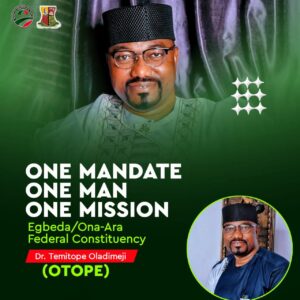The National Assembly yesterday waded into the controversy generated by the Federal Government’s plan to peg the age limit for students to write the West Africa Senior Secondary School Certificate, WASSCE, examination at 18 years.

It will be recalled that the Minister of Education, Professor Tahir Mamman, announced plans on Sunday by the federal government to set the age limit for the examination to 18 years.
This is even as the government’s decision yesterday elicited more condemnations, as former Vice President Abubakar Atiku and civil society organisations, CSOs, described it as archaic and draconian.
They also asked the government to put it on hold and call a meeting of stakeholders in the education sector to deliberate on the matter.
It’ll be subjected to public hearing — Senate
Reacting to the development yesterday, the Senate said it would subject the issue to public hearing when it comes before senators.
The Chairman, Senate Committee on Media and Public Affairs, Senator Yemi Adaramodu (APC, Ekiti South), said: “The Senate will consider, through it’s relevant committee, public views on any government policy brought to our legislative notice. Whatever is brought to the Senate for constitutional and statutory stamps shall be subjected to legislative crucible which includes public hearings.”
We haven’t been briefed — Reps
On his part, spokesman of the House of Representatives, Akin Rotimi, said the Green Chamber has no position on the matter yet, as members have not been briefed.
‘’I cannot say anything for now. When the House resumes and the matter is brought before it, it will be looked into,” he said.

However, aside from the former vice president, others who reacted included founder of Concerned Parents and Educators Network, CPE, Mrs Yinka Ogunde; the National Coordinator of Education Rights Campaign, ERC, Hassan Soweto; Resource Centre for Human Rights and Civic Education, CHRICED; and Global Rights Nigeria, among others.
They were reacting to the statement by the Minister of Education, on Sunday night that the government had pegged the age at which candidates would sit for the examination at 18 beginning from next year.
The development would also mean that such candidates would not be able to write the Unified Tertiary Matriculation Examination, UTME, conducted by the Joint Admissions and Matriculation Board, JAMB, for placement into higher institutions until they are 18, since candidates need WASSCE results to back up their admission processes.

Mamman had earlier in the year, suggested making 18 the admission age into higher institutions during a stakeholders’ meeting called by JAMB, but was opposed by most of the participants
Policy archaic, barrier to academic freedom — Atiku
Condemning government’s declaration yesterday, Atiku, who was the presidential candidate of People’s Democratic Party, PDP, in the 2023 elections, described the policy thrust as absurd and a barrier to academic freedom.
Atiku aired his thoughts in a piece, titled “Tinubu’s policy on age limit for tertiary education admission belongs in the Stone Ages,” posted on his Facebook page.
He wrote: “The recent policy of the Federal Ministry of Education pegging age limit for entry to tertiary institutions is an absurdity and a disincentive to scholarship.
“The policy runs foul of the delineation of responsibilities in a federal system of government such as we are practising, and gives a graphic impression of how the Tinubu government behaves like a lost sailor on a high sea.
“Otherwise, how is such anti-scholarship regulation the next logical step in the myriad of issues besetting our educational system?
For Latest news and Updates, Join our WhatsApp Channel
https://whatsapp.com/channel/0029Va9qtzXHwXbIyBGtjk2o
“To be clear, the Nigerian constitution puts education in the concurrent list of schedules, in which the sub-national governments enjoy more roles above the Federal Government.
“Therefore, it is extra-constitutional for the Federal Government to legislate on education like a decree.
“The best global standard for such regulation is to allow the sub-national governments to make respective laws or rules on education.









